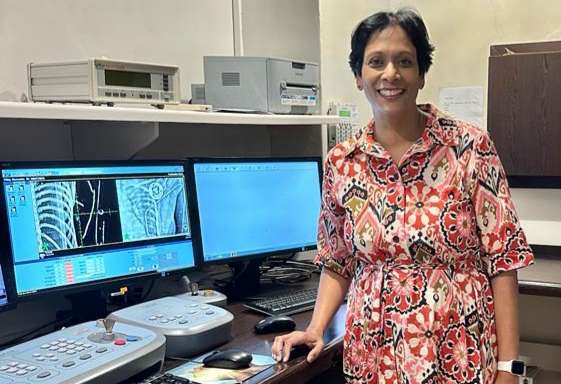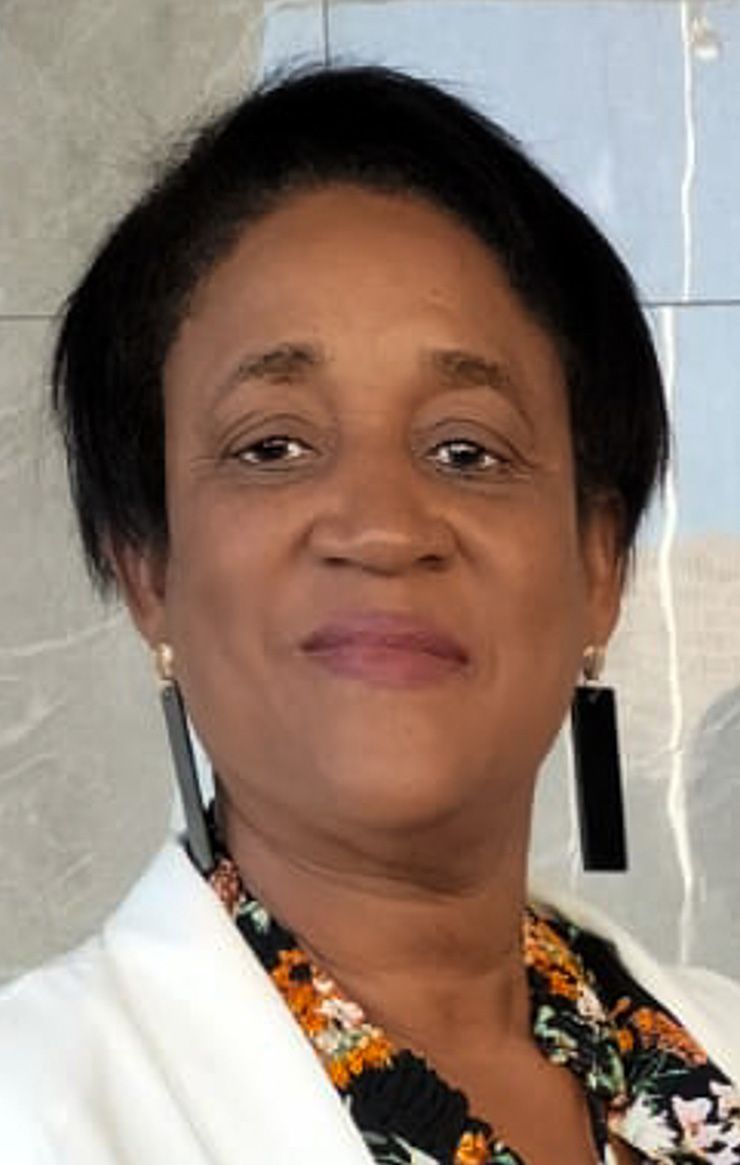Deep inspiration: Two women share their breast cancer journeys
Dr Diana Pillay, a radiation oncologist practising at Hopelands Cancer Centre in Netcare Parklands Hospital, says breast cancer is highly treatable with the advanced techniques available today, such as Deep Inspiration Breath Hold radiotherapy.
Advanced ‘breath hold’ radiation therapy technique
A breast cancer diagnosis is no longer a death sentence, and women should not be afraid to screen for this all-too-common condition, which is now highly treatable. Two women both undergoing Deep Inspiration Breath Hold (DIBH) technique radiotherapy at Netcare Parklands Hospital, share their experiences.
“A friend of mine was diagnosed with breast cancer before me, and she encouraged me to have a mammogram in July last year, where a shadow of something was picked up in my left breast that turned out to be malignant. Since then, another two friends have also been diagnosed, one of them after hearing about my breast cancer,” says Jenny Miller.
“The four of us have become closer, and it is wonderful to have the support of other people who can truly empathise with what you are going through. We have come across so many wonderful people in our treatment journeys, and it is so encouraging to hear from breast cancer survivors.”
Mrs Miller was referred to radiation oncologist Dr Lucille Heslop and met the clinical criteria for DIBH external beam radiotherapy, a highly targeted technique that accurately delivers a dose of radiation to the cancer while sparing healthy underlying tissue.
“While chemotherapy and radiotherapy to the chest are effective for treating cancer, these can cause cardiovascular side effects. DIBH aims to reduce exposure leading to cardiac toxicity for patients with left breast cancer who have already been exposed to cardiotoxic chemotherapy and targeted antibody therapy, such as Herceptin,” Dr Heslop explains.
“DIBH radiotherapy is now a firmly established technique, which more clearly defines the coronary vessels and heart, allowing more precise planning to deliver the radiation dose safely where needed,” she says.
Dr Diana Pillay, a radiation oncologist practising at Hopelands Cancer Centre in Netcare Parklands Hospital, says that the technique requires patients to breathe in deeply and hold their breath for a few seconds, guided by the radiotherapists.
“Before treatment, an MRI or CT scan is performed to identify the area the radiation beam should be focused on and the position of the heart, chest wall and other critical structures nearby that we need to avoid radiation exposure.
“When positioned on the treatment bed, the patient breathes in, causing the lungs to expand. As the chest rises, the heart drops into a lower position in the chest cavity, away from the targeted burst of radiation, while the patient holds their breath for 15 to 20 seconds. The person usually needs to be repositioned several times, but the treatment itself is delivered in these very short bursts,” Dr Pillay says.
“In the past, we saw mainly older people being diagnosed with breast cancer, but nowadays, it is a wide spectrum of age groups. Breast cancer is very treatable these days, and with the more advanced techniques available, such as DIBH radiotherapy, we can do more to prevent unnecessary exposure and the side effects of treatment.”
Retired primary school teacher Monica James was diagnosed with breast cancer after she noticed a small lump on her chest. “I am generally a very healthy person, so I didn’t think much of it but went to my GP at Netcare Medicross The Bluff, and she immediately set up a mammogram appointment for me.
“At the centre, they asked me if I had been for a mammogram before, and foolishly I had not. The journey that followed was an emotional one and a steep learning curve. Still, I was so lucky to have my very supportive husband with me every step of the way and a team of amazing healthcare professionals who I have come to trust implicitly,” Mrs James, 65, says.
“At first, when you are diagnosed, it feels like a death sentence, but the more you learn, the more you realise there is hope. I first had a course of chemotherapy and then surgery to remove the tumour. My surgeon referred me to Dr Heslop for radiotherapy to treat any remaining cancer cells, and I had to go for a month of DIBH sessions.
“It’s always daunting if you don’t know what to expect, but the radiology team at Netcare Parklands are so reassuring and treated me with such dignity that they felt like my daughters, and when I was having my treatments, we became like a little family. They explain everything to you so well and are so gentle,” Mrs James says.
“The radiotherapist taught me the breathing technique, and I had to practise a little, but it became easier after the first few times. Every week, I would see Dr Heslop, and she explained how to take care of the site and prescribed medication that soothed the area, and it worked like a charm.”
Both Mrs James and Mrs Miller have now completed their DIBH radiotherapy and have responded well to the treatment. Their oncologists are continuing to manage their conditions with regular injections. “My faith has lit the way on this journey, which is still ongoing, and although I had some dark times, I am feeling so much more myself, I feel so good. I want to thank Dr Heslop and Netcare, I knew I was in good hands,” Mrs James says.
Mrs Miller adds: “When you are diagnosed with cancer, people tell you that you are brave – but really, you just get on with it. I was very grateful for Dr Heslop and the radiotherapy team at Netcare Parklands Hospital, and I could see a way forward. I am very strong in my Faith and have a lot of support from wonderful family and friends, which is crucial to overcoming fear.
“I would like to encourage women to keep going for check-ups, especially if you have dense breast tissue, making it harder to detect breast cancer. Talk to your friends and family about the need for regular screenings, it could save the life of someone dear to you,” Mrs Miller concludes.
Monica James and Jenny Miller share their journeys of breast cancer diagnosis and treatment, and based on their experience, encourage women to have regular mammograms.















